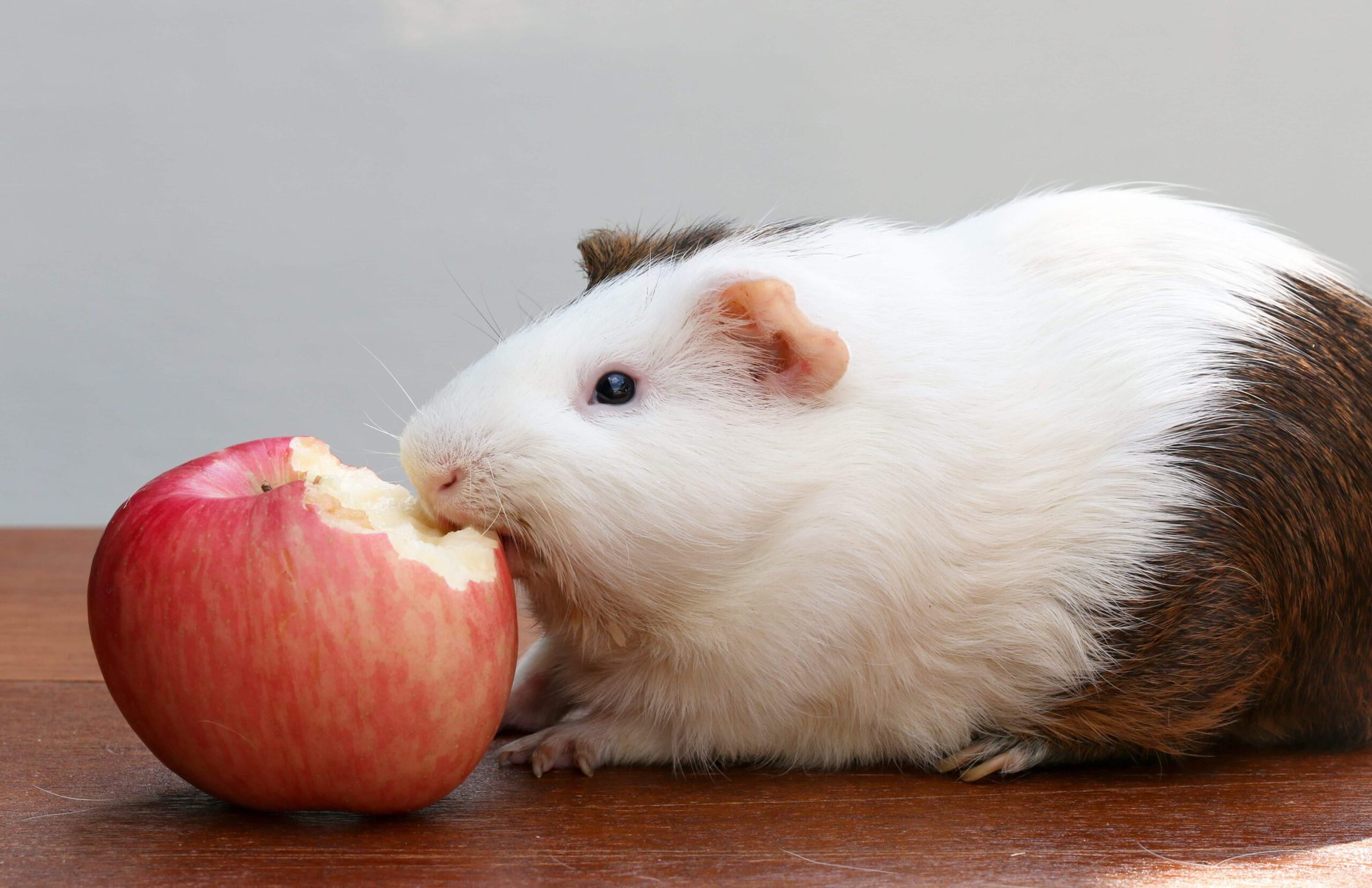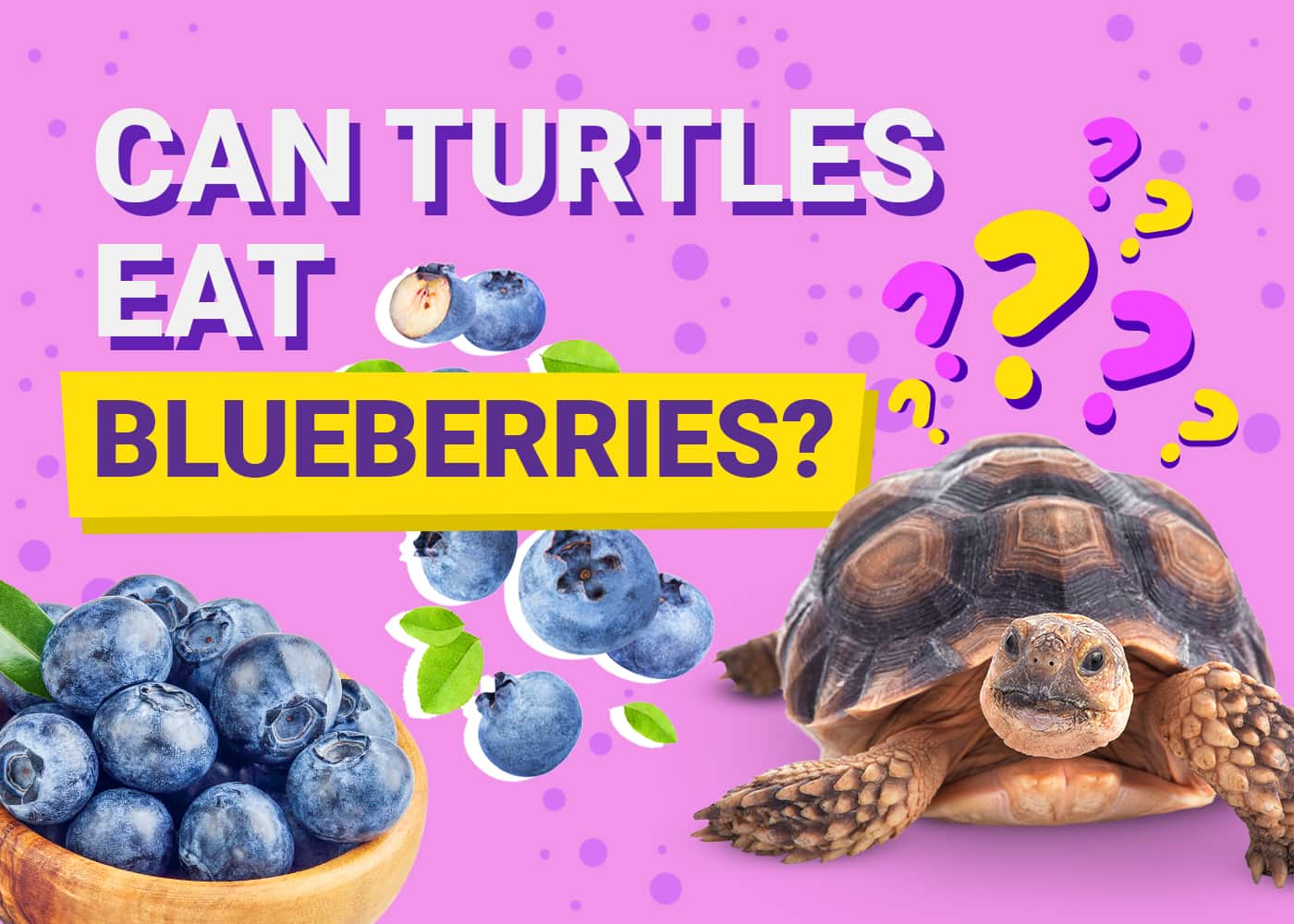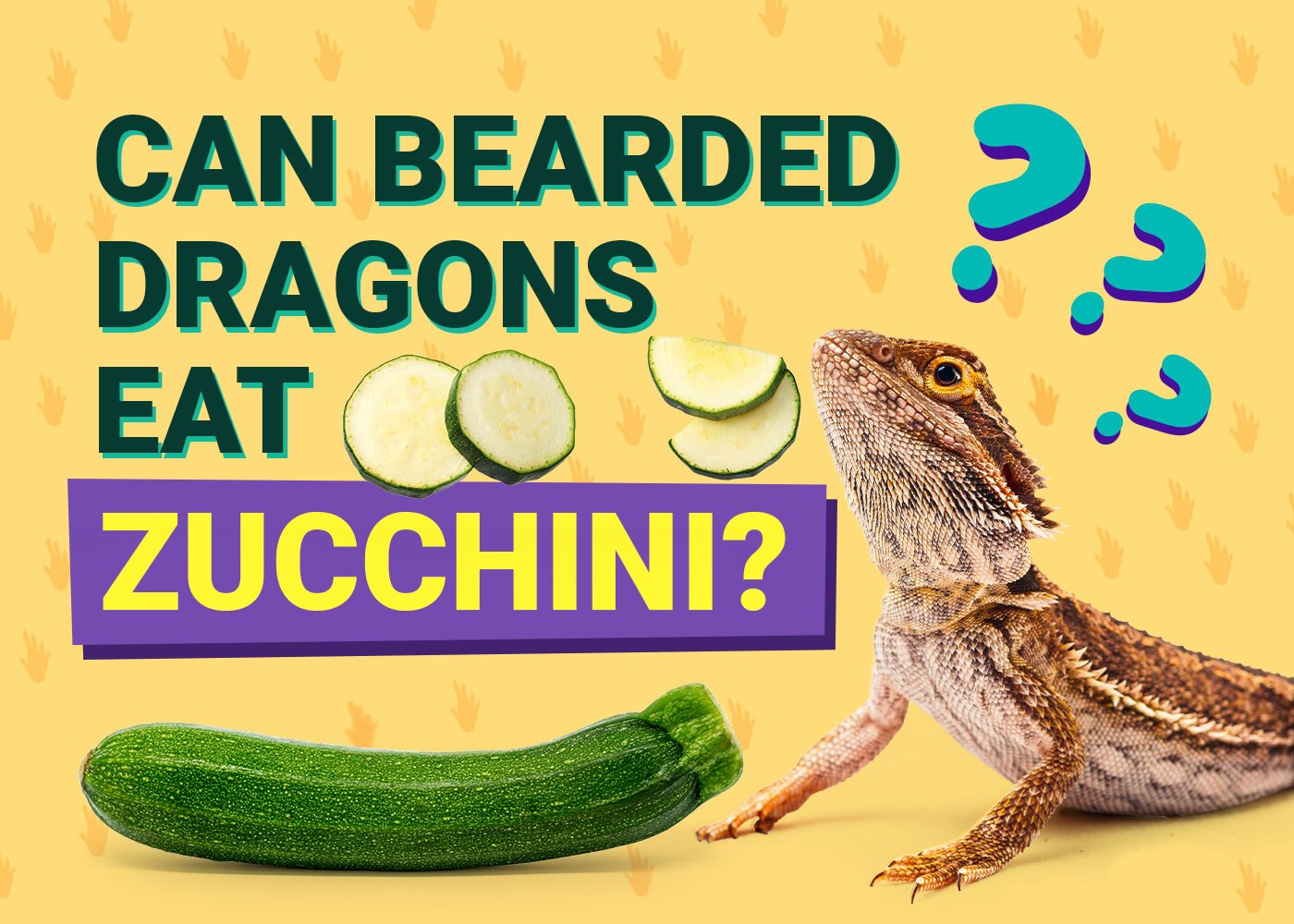VET APPROVED

The information is current and up-to-date in accordance with the latest veterinarian research.
Learn more »Click to Skip Ahead
Fresh vegetables should be the staple of your guinea pig’s diet, but you can occasionally serve fruit as a treat. However, not all fruits are suitable for your guinea pig to eat, so you need to have guinea pig-safe fruits on hand.
In this article, we’ll cover which fruit is safe for guinea pigs, how much fruit you should feed guinea pigs, and the overall diet of a healthy guinea pig. Let’s get started.

Is Fruit Good for Guinea Pigs?
Fruit provides vitamins and minerals that are great for guinea pigs. Vitamin C, for example, is a vitamin guinea pigs need a lot of, and many fruits are high in vitamin C. Because of the various vitamins and minerals in fruit, it is a healthy snack for guinea pigs.
However, It is often high in sugar, too. Although the sugar content isn’t too high for humans, fruits can easily cause your guinea pig to become fat if fed too frequently. In other words, fruit is good for guinea pigs if only given occasionally.
What Fruits Can I Feed My Guinea Pig?
When selecting fruit for your guinea pig, it’s important to select fresh and organic fruits without pesticides or chemicals. More so, try select fruits that are relatively low in sugar and carbs to keep your guinea pig in healthy shape.
Here are some fruits that are safe and how often you can feed them:
| Fruit Name | Frequency |
| Apple | Occasionally |
| Apricot | Occasionally |
| Banana | Rarely |
| Blueberries | A couple times a week |
| Cherries (de-pitted) | Occasionally |
| Cranberries | A couple times a week |
| Kiwi | Occasionally |
| Mango | Occasionally |
| Melon | Occasionally |
| Oranges | A couple times a week |
| Peach (de-pitted) | Occasionally |
| Pear | Occasionally |
| Pineapple | Occasionally |
| Raspberries | A couple times a week |
| Strawberries | A couple times a week |
The best fruits to feed your guinea pig include most berries, such as blueberries, cranberries, raspberries, and strawberries. Berries taste delicious to your guinea pig, but they are relatively low in sugar and carbohydrates compared to other fruits. Oranges are another great fruit simply because they are so high in vitamin C.
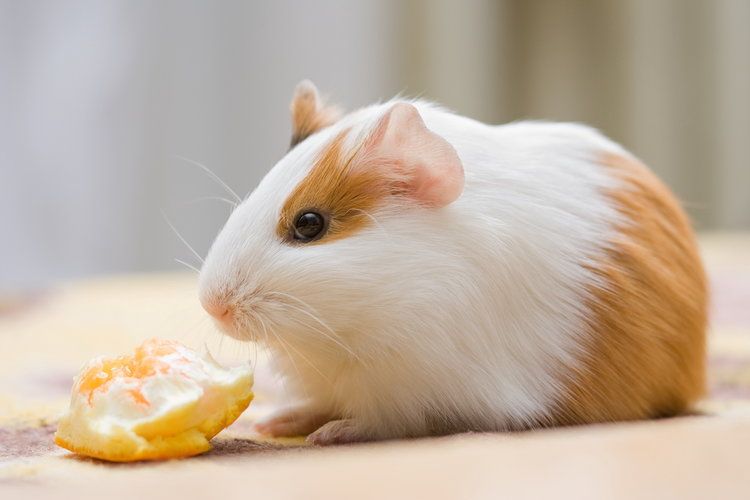
What Fruits Are Bad For Guinea Pigs?
Most fruits fed in moderation are healthy for guinea pigs. Especially if the fruit is organic and thoroughly cleaned, you don’t have much to worry about when it comes to feeding it to your guinea pig.
You should never feed your guinea pig fruit with the seeds inside. Seeds can be choking hazards and toxic. Cherry seeds, for example, have small amounts of arsenic that don’t affect us but can poison the small guinea pig’s body. For this reason, remove all seeds before feeding the fruit.
Don’t feed your guinea pig canned fruit, either. It has preservatives and additional sugars that will overload your guinea pig in no time. Stick to fresh fruits and vegetables.
How Often Should I Feed My Guinea Pig Fruit?
Because of the sugar in fruit, do not feed it to your guinea pig every day. At most, you can feed fruit to your guinea pig a couple of times a week (aka no more than two days a week) for a tasty snack.
It might be helpful to think of fruit as a dessert for your guinea pig. We recommend feeding your guinea pig a couple of berries twice weekly. The berries will add nutrients to the guinea pig’s diet without overloading them with sugar. Switch out the fruit based on the season to keep the guinea pig excited for its dessert.
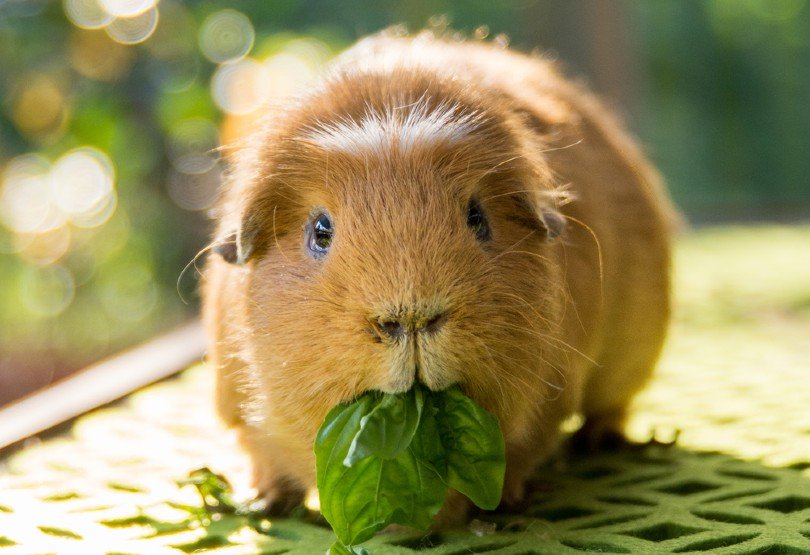
What Else Should I Feed My Guinea Pig?
Since fruit is only fed to your guinea pig as a dessert, you must fill the rest of the guinea pig’s diet with other tasty food. The most important part of your guinea pig’s diet is hay. Guinea pigs should have constant access to hay because it has a lot of fiber, wears down their teeth, and keeps them full. Without constant access to hay, your guinea pig will be hungry and overeat on pellets or veggies.
In addition to hay, provide your guinea pig with constant access to water. It’s a good idea to add vitamin C droplets to the water to ensure your guinea pig gets an adequate amount of vitamin C. You can feed your guinea pig fresh vegetables twice a day. Fresh greens are the best because they have several vitamins without excessive calories. Aim for about 1 cup of vegetables a day. Avoid iceberg lettuce, which has too much water and can lead to diarrhea.
Some guinea pig parents like to get pellets as well. Pellets ensure that the guinea pigs have the correct number of vitamins and minerals, but you should not provide constant access to pellets because they can make your guinea pig fat.
If you diligently provide enough vegetables, vitamin C, and fruit for your guinea pig, you don’t need to feed them pellets. The healthiest diet for your guinea pig is hay, vegetables, fruit, and extra vitamin C.
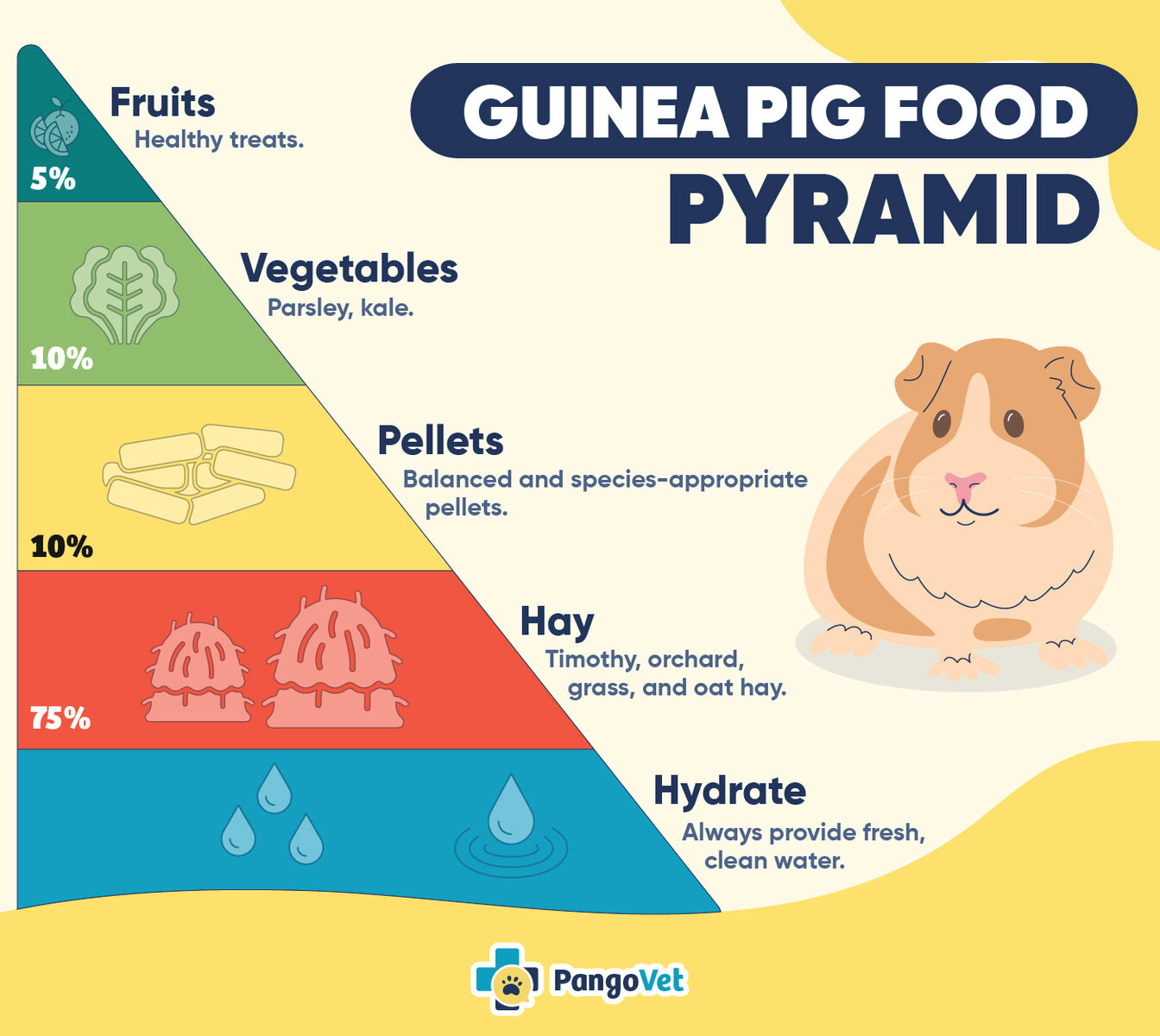

Conclusion
If you want to make your guinea pig happy, add fruit to their diet. It will help your guinea pig get enough vitamin C and other necessary vitamins and minerals. Because of the high sugar content, don’t overindulge your guinea pigs on fruit.
Instead, put your guinea pig on a primary diet of hay and vegetables, but toss in extra vitamin C and the occasional fruit. If you do that, your guinea pig will love you and squeal whenever you open the refrigerator.
Featured image Credit: Monkeyoum, shutterstock
